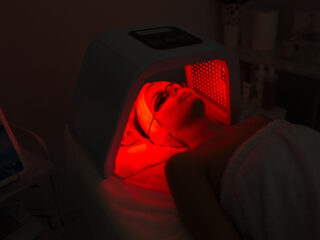What is perimenopause? Perimenopause is the period of time where women experience hormone fluctuations that can cause symptoms like hot flashes, night sweats, mood swings, and weight gain.
The 100 symptoms of perimenopause is a list of common symptoms that women may experience during perimenopause. This includes hot flashes, mood swings, vaginal dryness, and irregular periods.
More than likely, you’ve heard the phrase “menopause” rather than “perimenopause.” Heat flashes are undoubtedly something you’ve heard about. Then there’s the matter of mood swings. Then there’s the issue of weight gain.
Menopause is often portrayed as a rollercoaster of symptoms that hit you in the 40s or 50s. It isn’t, however, the whole story. The truth is that your body goes through perimenopause, which is a natural (and usually slow) transition from menopause to menopause.
You’ve entered menopause when you haven’t had a period for 12 months.
Until then, the hormonal imbalance of perimenopause produces a wave of discomfort that may last months or years.
Early signs and symptoms of perimenopause
Night sweats are one of the first signs of perimenopause. You may also notice that your menstrual cycle has become less predictable. Your menstrual cycle will grow increasingly irregular until your final period.
The following perimenopause symptoms may also occur:
- Hot flashes – While hot flashes are more frequent with menopause, it’s a good idea to keep track of your triggers (usually coffee and red wine) to keep them at bay.
- Changes in blood flow – your monthly bleeding may become heavier or lighter as your cycle becomes more irregular.
- Progesterone levels normally drop as a consequence of the hormonal imbalance that occurs during perimenopause. Progesterone may be the source of your sleeplessness since it alters sleep-inducing brain pathways.
- Heart palpitations – about 1 in 4 women reported their heart racing or fluttering on occasion during perimenopause.
- Hormone imbalances brought on by perimenopause may make you feel anxious, depressed, or angry.
PMS and perimenopause are not the same thing.
It may be tough to tell whether you’re going through perimenopause or if you’re having severe PMS symptoms (premenstrual syndrome). One of the most helpful things you can do is keep track of your symptoms. This may help you create a baseline for each cycle so that changes may be detected quickly.
If your PMS symptoms are becoming more severe, this may be a sign of perimenopause.
If you’ve never experienced PMS before but have recently developed it, it may be a sign of perimenopause.
Examine Your Signs and Symptoms
Learn how to handle stress to assist with perimenopause symptoms.
Perimenopause often starts between the ages of 45 and 55, when most women start to notice significant changes in their lives. Stress is exacerbated by caring for aging parents and children, as well as preparation for a new professional phase.
Your body generates more cortisol when you’re under a lot of stress on a regular basis (the stress hormone). Increased stress levels may aggravate the hormonal irregularities associated with perimenopause, exacerbating your symptoms.
According to our functional medicine approach, testing your cortisol levels is an important part of your perimenopause treatment. We think that helping you manage your stress and strengthening your adrenal glands (which produce cortisol) during perimenopause can help you feel better.
Perimenopause and estrogen dominance are dealt with as a whole.
Hormonal imbalances known as estrogen dominance, in which your body generates much more estrogen than progesterone, create the unpleasant symptoms of perimenopause.
As a result, it should come as no surprise that estrogen dominance may be managed with hormonal birth control. For women who have never had difficulties with birth control in the past, an IUD or a progesterone-only pill may be a suitable fit.
If you don’t want to utilize pharmaceutical birth control, you have other options. Hormone therapy isn’t the only method to deal with estrogen dominance.
You have the freedom to deal with your perimenopause symptoms in the way that is most comfortable for you.
A functional medicine practitioner may assist you by developing a treatment plan based on your values. Do you believe meditation is beneficial to your health? Do you want nutrition to play a larger role in your recovery? Do you believe dietary supplements may be as beneficial as traditional medicine? Your perimenopause treatment plan may be based on the lifestyle factors and behaviors that are most important to you, so that you are an active participant in your care.
View a video
Perimenopause is misunderstood by the medical community.
Perimenopause is a natural part of a woman’s life. Your regular doctor, on the other hand, may avoid discussing perimenopause. Perimenopause is often dismissed as something that women “had to go through,” and treatment options other than hormonal birth control are frequently ignored.
Functional medicine treatment methods, such as supplements, meditation, and nutritional guidance, are seldom discussed in detail in medical school, especially in the field of women’s health.
Unfortunately, traditional physicians seldom have the time or resources to effectively treat perimenopause. It takes more than a routine visit to figure out whether lifestyle factors, stress levels, and medical history are contributing to your perimenopause symptoms.
Examine Your Signs and Symptoms
To be successful, you must choose the right provider.
You may thrive throughout perimenopause. Finding a doctor who will listen to you and validate your emotions is the first step.
You are the best person to understand your body and the changes it is going through. It’s important that your doctor collaborates with you to develop a treatment plan that matches your values.
Perimenopause does not need to be an unpleasant experience. Consult a functional medicine practitioner for a more effective treatment plan if your symptoms have been dismissed by your doctor as something “you just have to live with.”
Obtain a Free Initial Consultation
The horror stories of perimenopause are the stories of women who have gone through the process. This article will give you an idea of what to expect and how you can thrive.
Frequently Asked Questions
How do you thrive during perimenopause?
Perimenopause is a stage of life that can be extremely difficult. Its commonly characterized by hormonal changes and symptoms such as hot flashes, mood swings, low libido, and vaginal dryness.
What are the signs of coming to the end of perimenopause?
The signs of perimenopause are difficult to pinpoint. Its not something that can be seen on a medical test, so its best to talk with your doctor about what youre experiencing and the changes in your body and mood that might indicate this stage of life.
How can I improve my perimenopause symptoms?
The best way to reduce the symptoms of perimenopause is to eat a diet rich in fruits and vegetables, as well as whole grains. A healthy diet can also help regulate hormones and improve mood, and a natural lubricant such as yoni oil for tightening can increase elasticity and alleviate vaginal dryness.
Related Tags
- i have weird symptoms with perimenopause
- symptoms of perimenopause at 44
- perimenopause test at home
- perimenopause supplements
- perimenopause diet
















